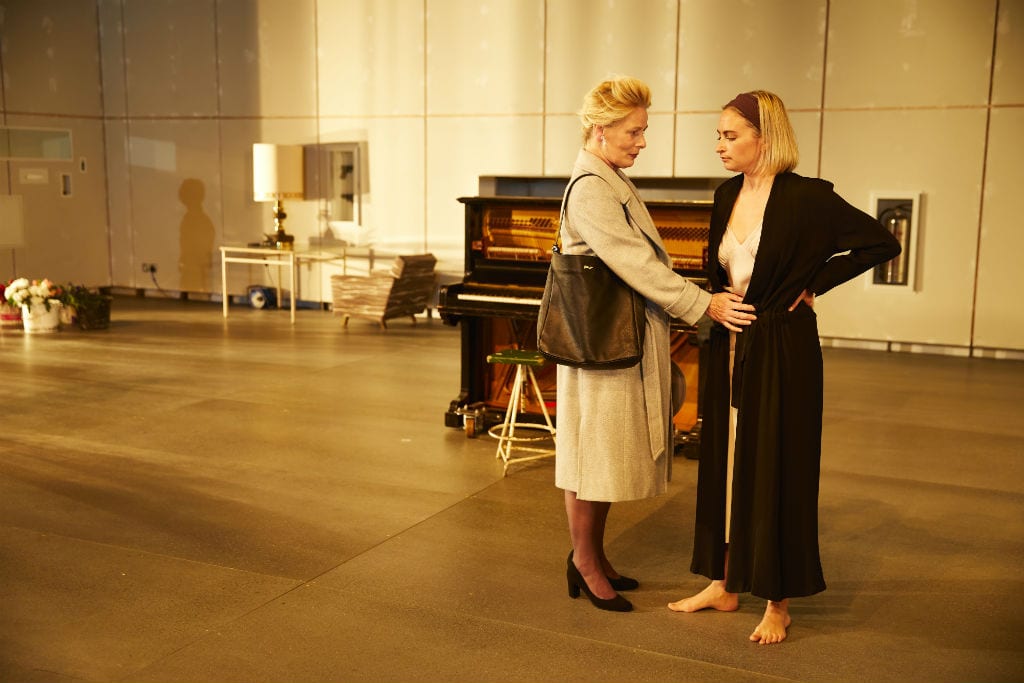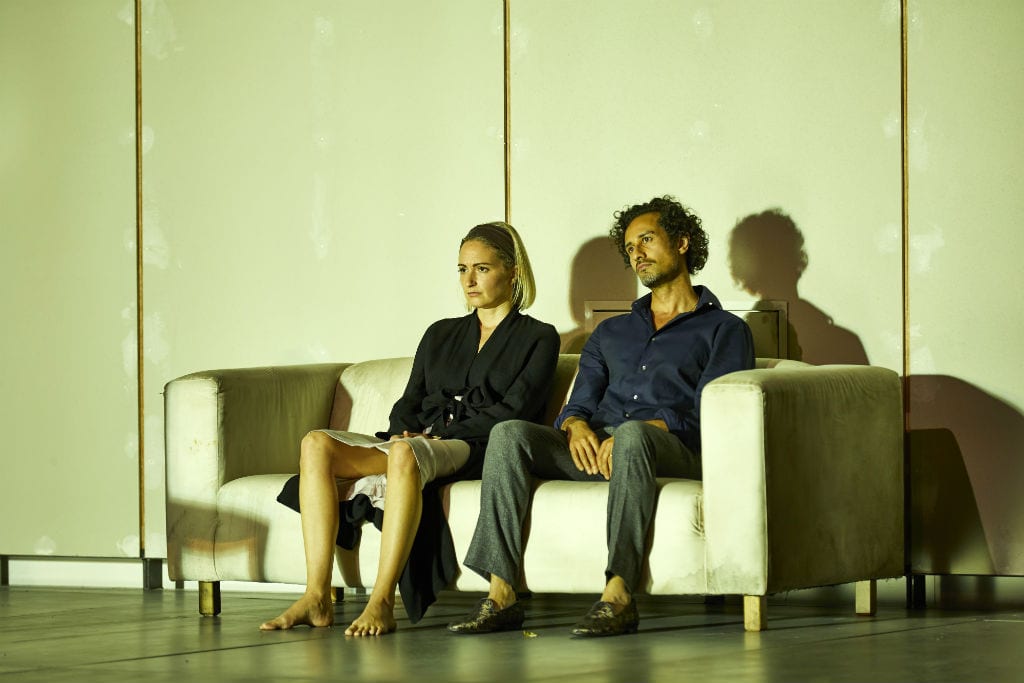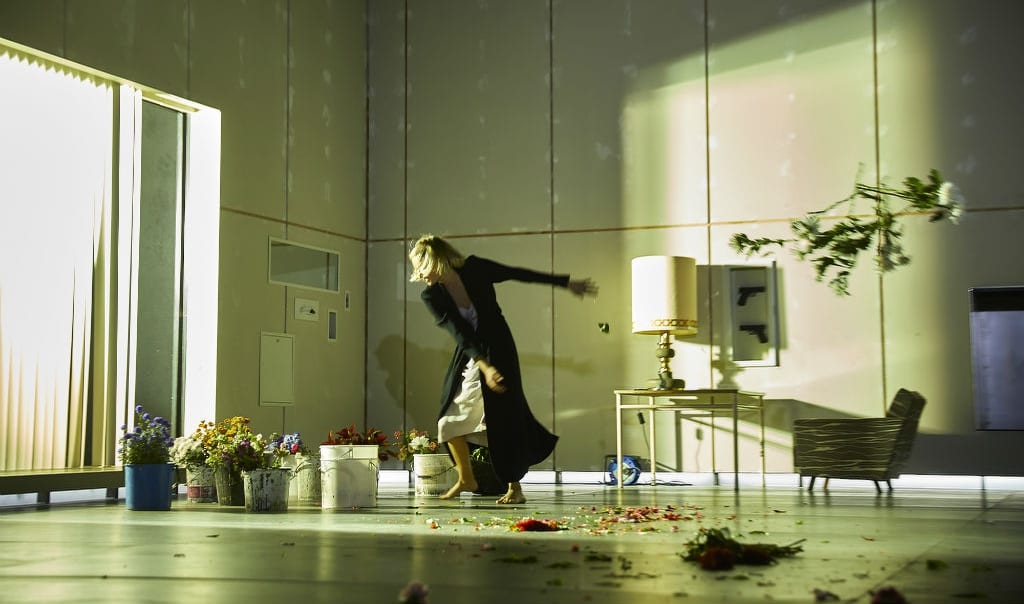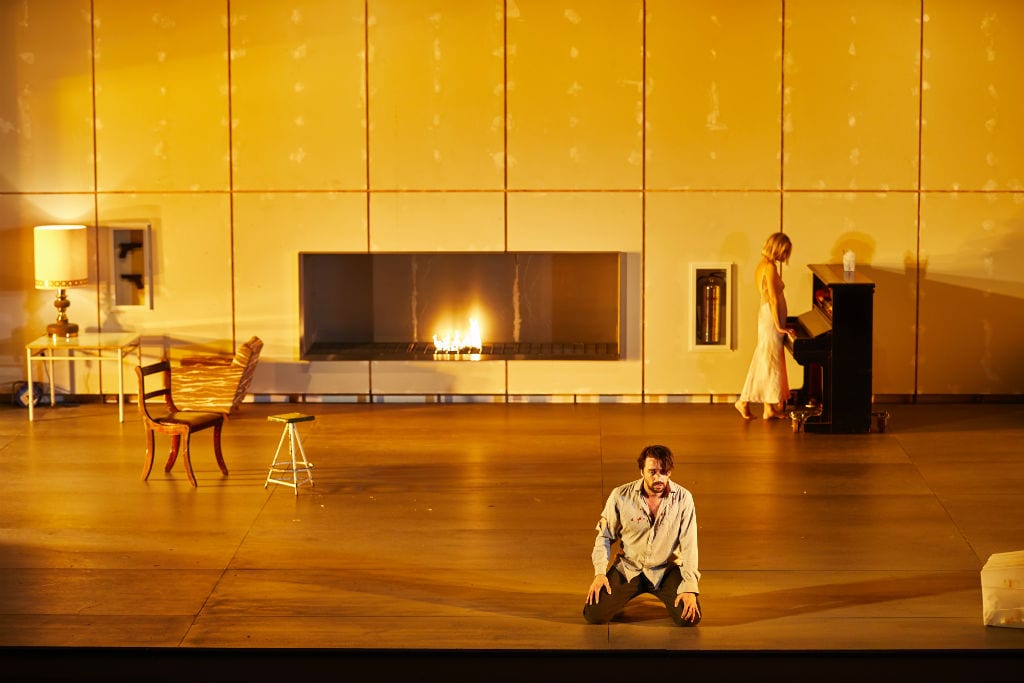Hedda Gabler, in the most basic terms, follows the new marriage between the titular character (Lizzy Watts) and a rising academic, Tessman (Abhin Galeya.) She is bored, trapped in a marriage she agreed to for conveniences sake and he is restless, unsure of his promotion, of her love, of his family’s health. As Hedda unravels she wreaks a trail of destruction, ruining friendships, relationships, careers and her own life.
This production is so tense, so tightly wound, that upon leaving the theatre I felt like I was having a panic attack or that I was very drunk or sort of both. Immediately upon entering the theatre we’re on edge, the set is an expanse of off white, an industrial space that could be an art gallery or a construction site and again is sort of both. To the side, just visible is a huge window or perhaps door, golden light pouring through to cover the stage. The ‘lovely’ Hedda Gabler is haltingly, irritatingly so, playing the piano as we walk in, and the housekeeper, Berte, is sitting to the side, by the intercom she will operate throughout the show, letting the seemingly endless stream of visitors into the space.
The tension is maintained throughout with an incredibly effective soundtrack. Often it would start so quietly that I thought it was in another room, or someone’s phone going off, or the heartbeat of the man sitting next to me, but it would build to a thudding, all encompassing sound that the actors would have to shout over, before cutting just as you were used to it as a part of the landscape. The palpable feeling of instability ran through the whole show, Lizzy Watts as Hedda moves like a caged animal, ranging around the set like an adventure playground, leaning out to touch people, draping herself over furniture. It is impossible to tell whether Hedda is doing everything on purpose, whether she’s wreaking destruction for its own sake or even when she’s lying and when she’s telling the truth. Annabel Bates as Mrs Elvsted also seems on the verge of completely unraveling, her love for Lovborg (Richard Pyros) steps between obsession and care constantly.
By trapping all the characters in the same room for the last act, Van Hove creates the kind of atmosphere where the destruction feels inevitable, there is no room to breathe. The light is slowly drained away, the window, that throughout has been our one reminder of the outside, is boarded up by the other characters as Hedda half dances, half fits to Jeff Buckley’s cover of Hallelujah. The last act is of course, shocking. Some extremely clever tricks and a completely chilling performance from Adam Best as Brock leaves you struggling to remember to breathe, let alone anything else. As Hedda makes her final choice, the only choice she makes for herself in the play, there are audible gasps in the theatre. This is theatre at its best and most jarring; absolutely, exhaustingly brilliant.




